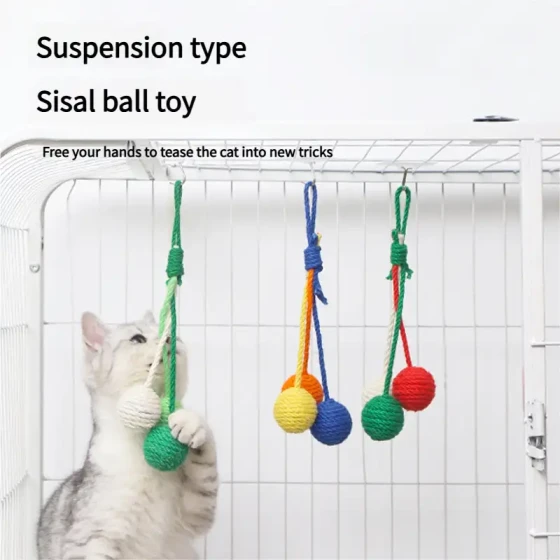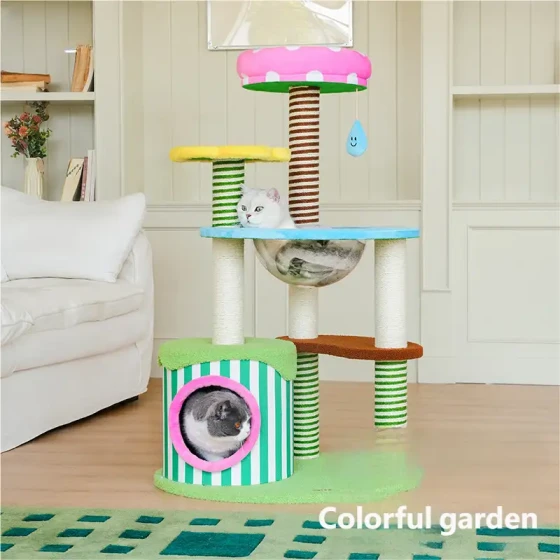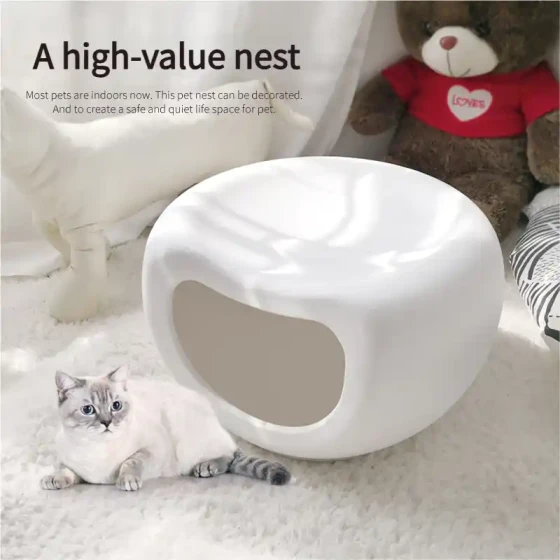How Long Does a Cat Forgive You After Being Hit_The Time Cats Hold Grudges and Reconciliation Methods
As our intimate family members, cats have an emotional world far more complex than we imagine. When you accidentally take excessive actions against them, like “hitting” a cat, many cat owners feel guilty and eagerly want to know: “How long does a cat forgive you after being hit?” In fact, cats do not “hold grudges” like humans; they mainly remember unpleasant experiences through associative memory. The time it takes for them to “forgive” varies by cat, ranging from a few minutes to several days or even longer, depending on the cat’s personality, the level of fright, and how you subsequently repair the relationship. But remember, the key lies in rebuilding trust, not merely waiting for forgiveness to happen over time.

A cat’s “distance” or “indifference” towards you is often due to being scared, feeling pain, or developing negative associations with specific behaviors. Understanding their behavior patterns and actively taking steps to repair the relationship will help the cat open up to you more quickly.
Do Cats Really “Hold Grudges”? How Do They Remember Unpleasant Experiences?
Humans often say “holding grudges,” meaning to remember something with resentment and possibly seek revenge. But describing cats as “holding grudges” using human terms is inaccurate. Cats’ memory methods are significantly different from humans. They mainly learn and remember things through associative memory and emotional memory.
If a cat is hit, it will associate the event with the situation at the time, the person who hit it (you), and the resulting pain or fear. The next time you approach or in similar situations, they may show avoidance, vigilance, or unfriendly behavior due to this negative association. This is not “revenge” but a self-protective reaction to avoid unpleasant experiences again.
Hitting a cat is a strong negative stimulus for them. They may associate the “hitting” with your hand, your voice, or even your scent, causing fear or distrust towards you. Once such negative associations form, time and effort are needed to gradually erase them. Some cats are naturally bold and recover quickly; others are like “fragile hearts” and may take a long time to bounce back.
The Impact of Hitting and Scolding on Cat Behavior
Physical punishment is harmful to cats with no benefits. It neither effectively corrects undesirable behavior nor is helpful but instead causes a series of negative effects:
- Damaged trust relationship: Cats will see you as a threat rather than a dependable companion. This severely harms your intimacy, making the cat distant, alert, and even unwilling to approach you.
- Increased fear and stress: Cats subjected to prolonged fear and stress may develop behavioral issues like inappropriate elimination, excessive grooming, increased aggression (self-defense), or becoming very timid and hiding.
- Fails to address root causes: Cats’ “troublesome” behaviors usually stem from natural needs (such as claw sharpening, exploration, seeking attention) or environmental stimuli and health issues. Punishing only confuses and frightens them without helping them understand what you truly want.
- Leads to aggression: Cats that are hit may fight back to protect themselves, scratching or biting owners. They might associate aggression with your presence, forming a vicious cycle.
Factors Influencing a Cat’s “Forgiveness” Time
The time a cat requires to recover from the negative experience of being hit has no uniform answer and depends on several factors:
- Cat’s personality:
- Bold by nature, highly socialized cats: They usually recover faster, may only avoid you briefly, and quickly approach out of curiosity or the desire for treats.
- Timid, sensitive, or previously abused cats: They may deeply imbed the unpleasant experience and need longer to rebuild trust, possibly remaining wary for an extended period.
- Severity and frequency of the incident:
- Mild “light hitting” (which is still not recommended): If it’s just a light tap and it’s the first time, the cat may forget quickly.
- Severe hitting or repeated physical punishment: If it’s harsh or repeated, the cat will feel extreme fear and anxiety, significantly prolonging the trust recovery time.
- Your subsequent behavior:
- Timely compensation and proper approach: If you immediately take positive measures afterward—like giving the cat space, gentle soothing, providing treats and toys—the cat will remove negative associations faster.
- Continued negative behavior or neglect: If you remain cold, ignore the cat, or fail to change your behavior patterns afterward, the fear and distrust will deepen.
How to Reconcile with Your Cat: Scientific and Effective Reconciliation Methods
If you accidentally hit your cat, here are some effective methods to help repair the relationship:
- Give the cat time and space: Cats need time to calm down. Don’t immediately chase or forcibly hug them. Let them hide and calm down on their own, giving them a quiet, safe “refuge.”
- Proactively make peace but don't force it:
- Gentle tone: Use the softest tone you usually use when talking to them, softly calling their name.
- Slow movements: Approach the cat slowly without sudden movements or loud noises.
- Treat temptation: Place some favorite treats near their favorite spots (like their bed or high places). Don’t hand-feed directly; let the cat decide whether to come eat.
- Toy interaction: Use favorite toys like a cat wand or laser pointer to attract their attention from a distance, letting them enjoy playtime without forcing interaction.
- Rebuild positive associations:
- Gentle petting: When the cat approaches you voluntarily, try slow, gentle strokes on spots they usually like, such as the chin or behind the ears. Stop immediately if signs of discomfort appear (e.g., tail flicking, ears turned back).
- Shared playtime: Spend fixed daily periods playing with your cat using toys they enjoy. Play is vital for building positive relationship bonds.
- Fixed feeding times: Keep consistent feeding schedules to associate your presence with pleasant mealtime experiences.
- Identify and correct the root causes of problem behaviors:
- Rather than hitting or scolding, consider why the “problem behaviors” occur. For example, scratching furniture might result from inadequate or poorly placed scratching posts; inappropriate elimination may stem from dirty, insufficient litter boxes or health issues.
- Consult professional animal behaviorists or veterinarians for scientific solutions, guiding your cat via environmental modifications and positive training.
- Patience and love are essential: Repairing trust requires time; don’t expect immediate results. Some cats may recover in days, others may take weeks or longer. Consistent patience and love will eventually pay off.
Prevent Recurrence: Establishing a Harmonious Human-Cat Relationship
The saying “spare the rod, spoil the child” does not apply in the cat world. Building a truly harmonious and lasting relationship hinges on understanding, respecting, and positive guidance:
- Learn cat body language: Understanding their expressions, tail movements, ear positions helps you better grasp their emotions and needs, avoiding misunderstandings.
- Avoid physical punishment: Any form of punishment backfires. If a cat misbehaves, try “ignoring,” “interrupting play,” or using a loud “No!” to stop unwanted behavior.
- Positive reinforcement training: Reward desired behaviors (like using the scratching post or litter box) promptly with treats, praise, or petting to help cats associate good behavior with positive outcomes.
- Provide a rich environment: Give cats enough vertical space (cat trees), hiding spots, ample toys, and scratching supplies to fulfill their natural needs and reduce behavioral problems.
- Regular health checks: Some behavior issues stem from health problems. Regular veterinary exams ensure their physical well-being.
Frequently Asked Questions
Q1: Does a cat become less affectionate after being hit?
A1: Yes, cats are likely to become less affectionate after being hit. They associate hitting and scolding with fear and distrust, leading them to avoid you and limit interaction.
Q2: Do cats remember the person who hit them?
A2: Cats remember the person who hit them, but this memory is not “holding a grudge” as humans do—it's based on negative associations. They will view you as someone who causes unpleasant experiences and thus remain cautious.
Q3: How long does it take for a cat to trust me again?
A3: The time varies by cat and depends on personality, fear level, and your efforts to restore the relationship. It can be as short as a few days or as long as several weeks or more. The key is consistent patience, gentleness, and positive interaction.
Q4: What is the best way to discipline a cat?
A4: It is not recommended to punish a cat physically or otherwise. More effective methods include interrupting bad behavior and positively reinforcing good behavior. For example, loudly say “No!” to stop misbehavior, then immediately redirect and reward the correct behavior.
Summary
Hitting and scolding cats not only fails to solve problems but severely damages trust between you and your cat. Cats do not hold grudges like humans; their reaction to being hit is mainly fear and self-protection. The time they take to “forgive” varies by individual and repair methods, but rebuilding trust depends on your attitude and actions.
Rather than obsessing over when the cat will “forgive,” take immediate action by giving your cat plenty of space and patience, using gentle language, tasty treats, fun toys, and a stable environment to gradually mend your bond. Remember, love and patience are the foundation of a harmonious human-cat relationship. Only by understanding their behavior and guiding them positively can you make your cat truly feel the warmth and safety of home.
References
- International Society of Feline Medicine (ISFM) guidelines on cat behavior and welfare.
- Articles from the American College of Veterinary Behaviorists (ACVB) about feline aggression and behavior issues.
- Professional cat behavior books such as "The Cat Language Lexicon: Cat Body Language, Behavioral Issues, and Human-Cat Interaction" by Pam Johnson-Bennett.
- Authoritative pet health websites like WebMD Pets and ASPCA with educational articles on cat behavior and training.



